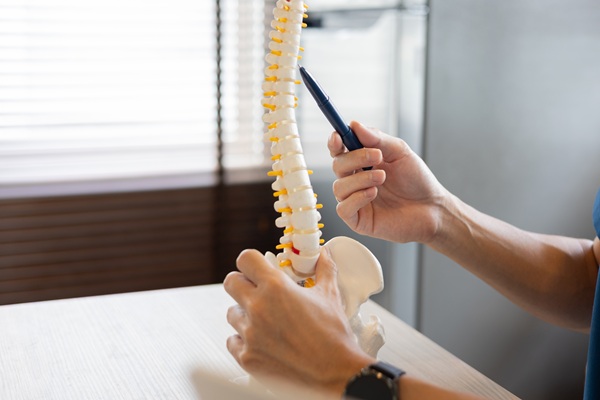Neurosurgery Scoliosis Treatment

Scoliosis treatment can be quite involved, as this condition is complex and usually painful for the individual suffering. Thankfully, neurosurgeons are equipped to diagnose, treat, and manage scoliosis in a way that helps to induce comfort and reduce pain. Of course, each individual is different, meaning their symptoms may vary, but in severe cases, bracing and or surgery may be required. Continue reading to find out more about what is involved.
Scoliosis treatment from a neurosurgeon
Below is an overview of how a neurosurgeon may treat scoliosis. Reviewing this information can be helpful to sufferers of this condition.
A neurosurgeon's role
Neurosurgeons study everything about the brain. However, because the brain is protected by the skull, the spine and neck are also connected to a neurosurgeon's role.
Treatment options
In order for a neurosurgeon to make the best decision about scoliosis treatment, they must first consider a few things. The following factors will help determine the treatment plan.
- The age of the patient: This determines the spinal maturity
- Curve progression: Large curves before adolescents may progress
- Curve location: Thoracic curves are more likely to progress
- Degree and extent: Does the scoliosis curve affect lifestyle
After considering these factors, the neurosurgeon will likely choose a treatment plan involving bracing or surgical procedures. In addition to either treatment option, the neurosurgeon will also closely monitor the scoliosis on a regular basis.
Bracing in scoliosis treatment is typically only used for individuals who have not reached full maturity. If the spine has not matured completely and there is still room for development, the brace can alter the curve, ultimately benefiting the scoliosis.
Surgical procedures, on the other hand, are typically advised when the curve is too severe or for children who are at risk of progression. The surgery would ideally stop the curve from progressing into adulthood.
Lifestyle habits
In addition to the actual scoliosis treatment, the neurosurgeon will also likely recommend certain lifestyle practices to benefit the treatment. Outlined below are a few of the recommendations.
- Seeing a chiropractor and or physical therapist for light to mild efforts
- Lightly stretching every day
- Sleeping on a mattress that is on the firmer side
- Yoga or pilates
- Sleep on the back or side, but never the stomach
- Avoid remaining stiff or in one spot for too long
Of course, these lifestyle recommendations may not work for everyone. However, in general, they can be helpful in the management of scoliosis on a day-to-day basis.
Talk to a neurosurgeon today
Scoliosis treatment can only begin after consulting with a neurosurgeon. The consultation will allow for an evaluation of the entire spine, back, head, and neck. Additionally, the patient can also ask questions and go over concerns they have. From there, a treatment plan will be put into place, which will likely consider some of the treatments listed above. To find out more or to get scheduled for a consultation appointment, reach out today.
Request an appointment here: https://arizonaneurosurgeon.com or call Randall Porter, M.D. at (602) 603-8951 for an appointment in our Phoenix office.
Check out what others are saying about our services on Yelp: Scoliosis Treatment in Phoenix, AZ.
Recent Posts
Spondylolisthesis occurs when one vertebra in the spine slips forward over the one below it, and understanding treatment helps patients make informed decisions about pain relief and mobility. This condition can cause mild to severe lower back pain, leg pain, stiffness, or even changes in posture and walking patterns. Understanding the full range of treatment…
Hemifacial spasm is a neurological condition that causes involuntary twitching or contractions on one side of the face. These spasms may begin near the eye and gradually affect surrounding muscles, including the cheek and mouth. While the condition is not typically life-threatening, it can significantly impact daily life and emotional well-being. Hemifacial spasm treatment focuses…
A herniated lumbar disc occurs when the soft center of a spinal disc pushes through a tear in the outer ring, often irritating nearby nerves. Early attention helps reduce pain and protect nerve function. Patients may experience sharp low back pain, radiating leg pain (sciatica), numbness, or weakness. A neurosurgeon evaluates symptoms, reviews imaging studies,…
Meningioma is a type of tumor that develops from the membranes covering the brain and spinal cord. While many meningiomas grow slowly and may not cause noticeable symptoms, some tumors can lead to significant health concerns. When you can recognize the signs early, you can get the treatment you need from a neurosurgeon, giving you…


